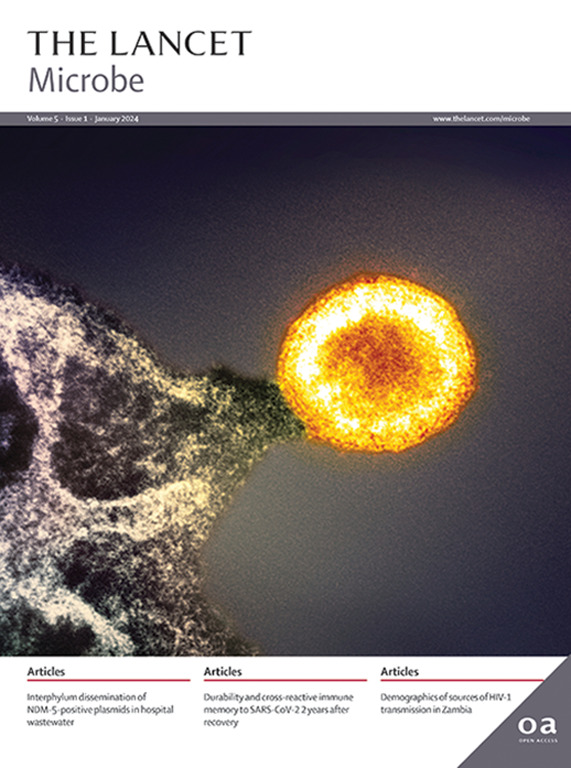Implementing a national programme of pathogen genomics for public health: the Australian Pathogen Genomics Program (AusPathoGen)
IF 20.9
1区 生物学
Q1 INFECTIOUS DISEASES
引用次数: 0
Abstract
Delivering large-scale routine pathogen genomics surveillance for public health is of considerable interest, although translational research models that promote national-level implementation are not well defined. We describe the development and deployment of the Australian Pathogen Genomics Program (AusPathoGen), a comprehensive national partnership between academia, public health laboratories, and public health agencies that commenced in January, 2021. Successfully establishing and delivering a national programme requires inclusive and transparent collaboration between stakeholders, defined and clear focus on public health priorities, and support for strengthening national genomics capacity. Major enablers for delivering such a programme include technical solutions for data integration and analysis, such as the genomics surveillance platform AusTrakka, standard bioinformatic analysis methods, and national ethics and data sharing agreements that promote nationally integrated surveillance systems. Training of public health officials to interpret and act on genomic data is crucial, and evaluation and cost-effectiveness programmes will provide a benchmark and evidence for sustainable investment in genomics nationally and globally.
实施国家公共卫生病原体基因组计划:澳大利亚病原体基因组计划(AusPathoGen)。
为公共卫生提供大规模的常规病原体基因组学监测引起了人们的极大兴趣,尽管促进国家级实施的转化研究模式还没有得到很好的界定。我们介绍了澳大利亚病原体基因组计划(AusPathoGen)的开发和部署情况,该计划是学术界、公共卫生实验室和公共卫生机构之间的全面国家合作项目,于 2021 年 1 月启动。要成功建立和实施一项国家计划,需要利益相关者之间开展包容、透明的合作,明确界定公共卫生优先事项,并支持加强国家基因组学能力。实施这一计划的主要推动因素包括数据整合与分析的技术解决方案,如基因组学监测平台 AusTrakka、标准生物信息分析方法,以及促进国家整合监测系统的国家伦理和数据共享协议。对公共卫生官员进行基因组数据解读和行动方面的培训至关重要,而评估和成本效益计划将为国家和全球在基因组学方面的可持续投资提供基准和证据。
本文章由计算机程序翻译,如有差异,请以英文原文为准。
求助全文
约1分钟内获得全文
求助全文
来源期刊

Lancet Microbe
Multiple-
CiteScore
27.20
自引率
0.80%
发文量
278
审稿时长
6 weeks
期刊介绍:
The Lancet Microbe is a gold open access journal committed to publishing content relevant to clinical microbiologists worldwide, with a focus on studies that advance clinical understanding, challenge the status quo, and advocate change in health policy.
 求助内容:
求助内容: 应助结果提醒方式:
应助结果提醒方式:


